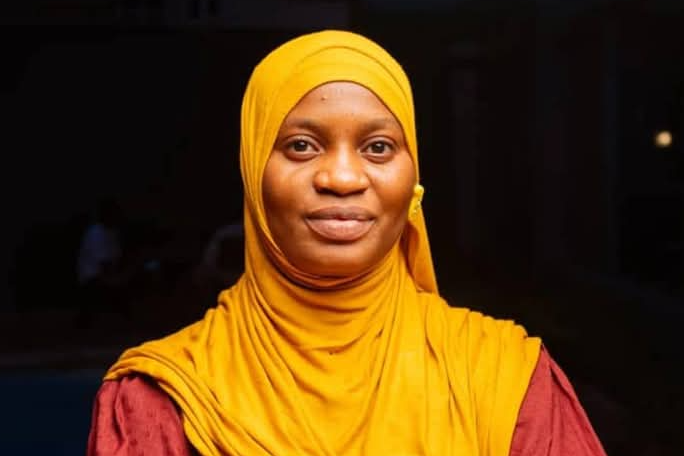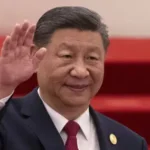Nigeria faces a disturbing waste-management crisis. More than 32 million tonnes of solid waste are generated annually, with plastics comprising at least 2.5 million tonnes. This crisis is evident in indiscriminate dumping and clogged drainage systems across many Nigerian cities.
According to the World Bank, less than half of Nigeria’s urban waste is formally collected, and only a fraction ends up recycled. This absence of proper disposal infrastructure, coupled with a lack of widespread environmental education and enforcement, has led to a surge in flooding, toxic emissions from open burning, and disease outbreaks linked to pollution.
While large-scale initiatives remain patchy or underfunded, Nigeria’s environment sector has witnessed the emergence of grassroots advocates like Faridah.
Faridah Igbayilola’s environmental consciousness began in childhood, inspired by the natural serenity of northern Nigeria, where she grew up.
She describes those formative years as integral to her work in conservation. As a hijab-wearing Muslim woman, she has had to navigate patriarchal norms and religious stereotypes.
As a teenager, she naturally gravitated toward leadership, finding herself drawn to younger children, mentoring them, educating them, and forming bonds that later laid the groundwork for her commitment to child development and community service.
This blend of environmental consciousness and leadership matured into a life mission. While others encouraged her to pursue more conventional career paths in media or health, Faridah remained firm.
Faridah followed her passion. She enrolled at the National Open University of Nigeria, where she earned a degree in Environmental Science and Resource Management.
Her journey was not linear. She had to switch departments and adjust to limited practical experiences. Still, she graduated in 2024 with her passion intact and her vision clearer than ever.
While studying, she immersed herself in community work. She joined Future Builders Initiative, a youth-focused nonprofit advocating for girls, youth, and inclusive development. She rose to lead the “Girls Leading Change” project, a programme that has reached over 10,000 young people across Osun State.
Through workshops and mentorship, she has taught girls about leadership, career development, and reproductive health while ensuring that boys are not left out. Inclusivity is central to her work.
Parallel to her advocacy for young people, Faridah deepened her involvement in environmental issues. She became particularly concerned with the state of Osun’s waste management. Inadequate drainage systems, illegal dumping, and poor flood control mechanisms have plagued the region. Communities frequently suffer flood disasters that destroy property and livelihoods.
She recalls a particular story about a woman in her neighbourhood who used to dump refuse in the local waterway until a heavy flood destroyed her shop. That experience transformed the woman into an environmental defender. Now, she actively warns others against the same habit.
To address these issues on a larger scale, she partnered with youth-led NGOs and stakeholders across Osun State. She organised cleanups and advocacy campaigns in schools and public parks, distributed waste bins to local markets, and worked with park managers to enforce sanitation guidelines.
She and her team have educated over 150 students, formed green clubs, and trained youths to be climate advocates in their communities.
One of her most impactful strategies has been economic. By promoting plastic collection for recycling, she has helped people realise that waste has value.
Today, in parts of Osogbo, it’s common to see residents filling sacks with plastic bottles, which are sold to recycling companies for ₦2,000 to ₦10,000, depending on the volume and cleanliness. This shift from trash to income has encouraged more people to sort and dispose of waste responsibly.
To create systems that endure, cleanups are now held weekly in Osogbo. Market leaders take charge of ensuring cleanliness. Residents who can’t afford formal waste collection services now allow informal scavengers to pick recyclables. Households are beginning to view waste separation as a daily habit rather than an obligation.
Her work in schools is especially inspiring. Through green clubs, students are trained to identify local environmental challenges and propose solutions. At one secondary school in Osun State, a girl who quietly observed her workshop became so inspired that she decided to pursue the same path.
She later called her with exciting news that she had gained admission into Osun State University to study Environmental Management and Toxicology. For Faridah, the moment was profound: this young girl, once just a student in the crowd, was now becoming a full-fledged environmentalist.
“And that is one of the things that gladdened my heart, that someone looked up to me to the point of pursuing a course related to environmental science. And to address issues regarding the toxicology aspect of the environment.”
Another story speaks to the power of intersectionality between climate action and technology. A boy who participated in one of her workshops was already interested in tech and decided to use his skills to develop a climate-focused application.
Inspired by Faridah’s teachings, he began building platforms for climate storytelling, creating websites and graphic tools to simplify and amplify environmental messaging.
Today, he’s designing systems that not only raise awareness but also help track local environmental changes. Through tech, he is bridging the gap between data and action, one click at a time.
Despite these triumphs, as a woman advocating in a male-dominated field, she has faced criticism. Some have described her as too outspoken, saying that a woman who spends her days campaigning and leading cannot possibly fulfill the traditional roles of a wife or mother.
“We are in a society where when females try to lead, we are seen as someone who is not going to be a submissive housewife or mother. I am a hijabi, and some people ask, You are a hijabi why do you go out there and do this and all? Most times, people will tell me I am being more of a career person.”
She believes that education and service are not at odds with faith. “Religion does not stop us from learning, teaching, or making an impact,” she says. “My hijab is not a limitation; it is a part of who I am.”
When faced with scepticism or backlash, she reminds herself that those who cast the most judgment often applaud the loudest once success is visible.
“One of the things my religion preaches is that we should seek knowledge even if it’s as far as China. The best among us is the one who impacts knowledge.”
Beyond the gender barriers, funding has been another obstacle. Much of her work has been self-funded or supported by NGO partnerships.
Yet Farida sees even this constraint as a tool for innovation. She has learnt to do more with less, building community-led solutions that do not depend entirely on external funding.
“Do right by the environment,” she urges the government and citizens alike. She pushes for community engagement. Rather than waiting for large policy changes at the federal level, she urges stakeholders to start from local governments, empowering communities with tools, knowledge, and agency.
Today, Osun State is gradually becoming a model for localised environmental action, not because it has the most resources but because it has champions like Faridah who are willing to fight for every plastic bottle saved, proper waste disposal, every child taught, and every voice amplified. And while the fight is far from over, she is determined to keep going.
Nigeria is contending with a severe waste-management crisis, generating more than 32 million tonnes of solid waste annually, including at least 2.5 million tonnes of plastic. With less than half the urban waste being formally collected and a very small portion recycled, the poor waste disposal situation, compounded by inefficient infrastructure, results in frequent flooding and pollution-induced diseases. Amidst this challenge, grassroots activists like Faridah Igbayilola have emerged, dedicating themselves to environmental advocacy and community service. Faridah, motivated by her appreciation for nature and leadership skills honed from an early age, persevered in her pursuit of environmental science despite societal pressures to follow conventional career paths. She not only pursued this academically but also engaged in practical initiatives such as community clean-ups, stakeholder engagements, and educational workshops to foster awareness and action towards responsible waste management.
Faridah's work extended to leading projects within the Future Builders Initiative, focusing on empowering young people and involving them in environmental advocacy. Her efforts have included forming green clubs in schools, advocating for inclusive development, and promoting plastic collection for recycling, which turns waste into economic opportunities. Her initiatives have also inspired individuals, such as a girl who chose to study Environmental Management and Toxicology and a tech-savvy boy who built digital platforms for climate storytelling. Facing challenges like gender bias and funding, Faridah remains resolute, emphasizing that education and service align with her faith and advocating for community-led solutions independent of external funding. Faridah inspires with her belief in effective local action and her commitment to turning every community initiative into a sustainable model for environmental sustainability.






